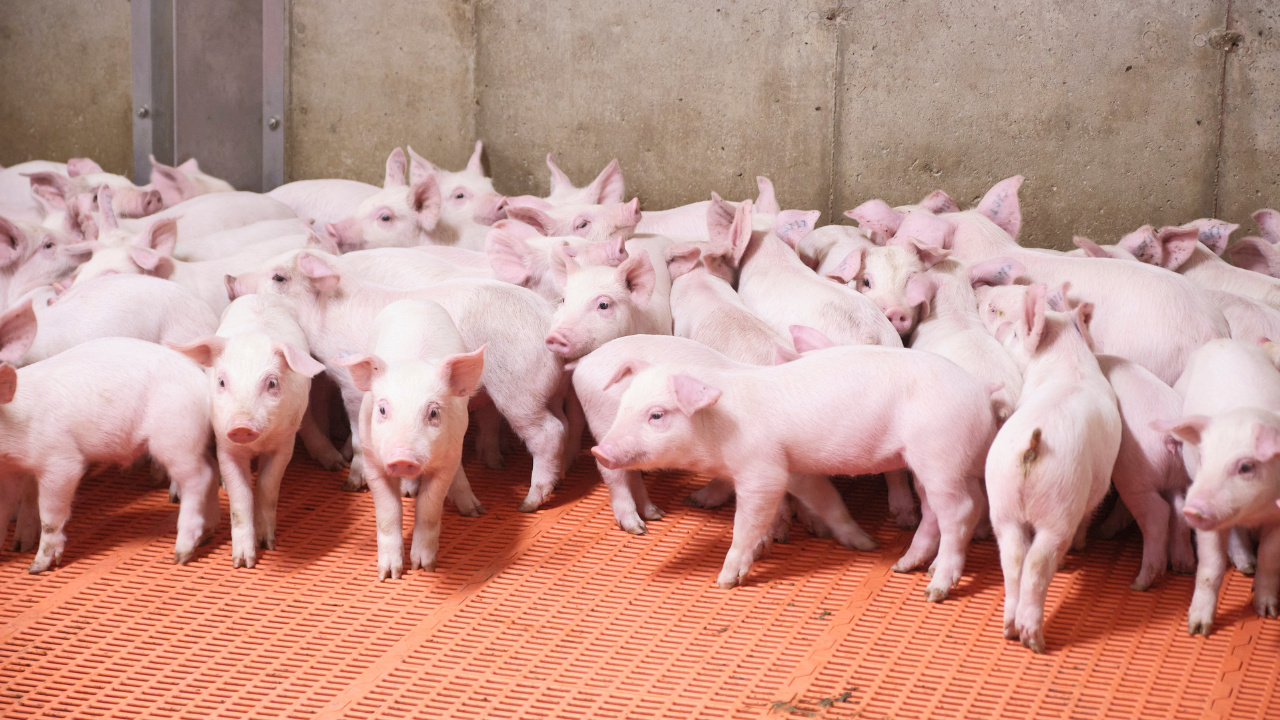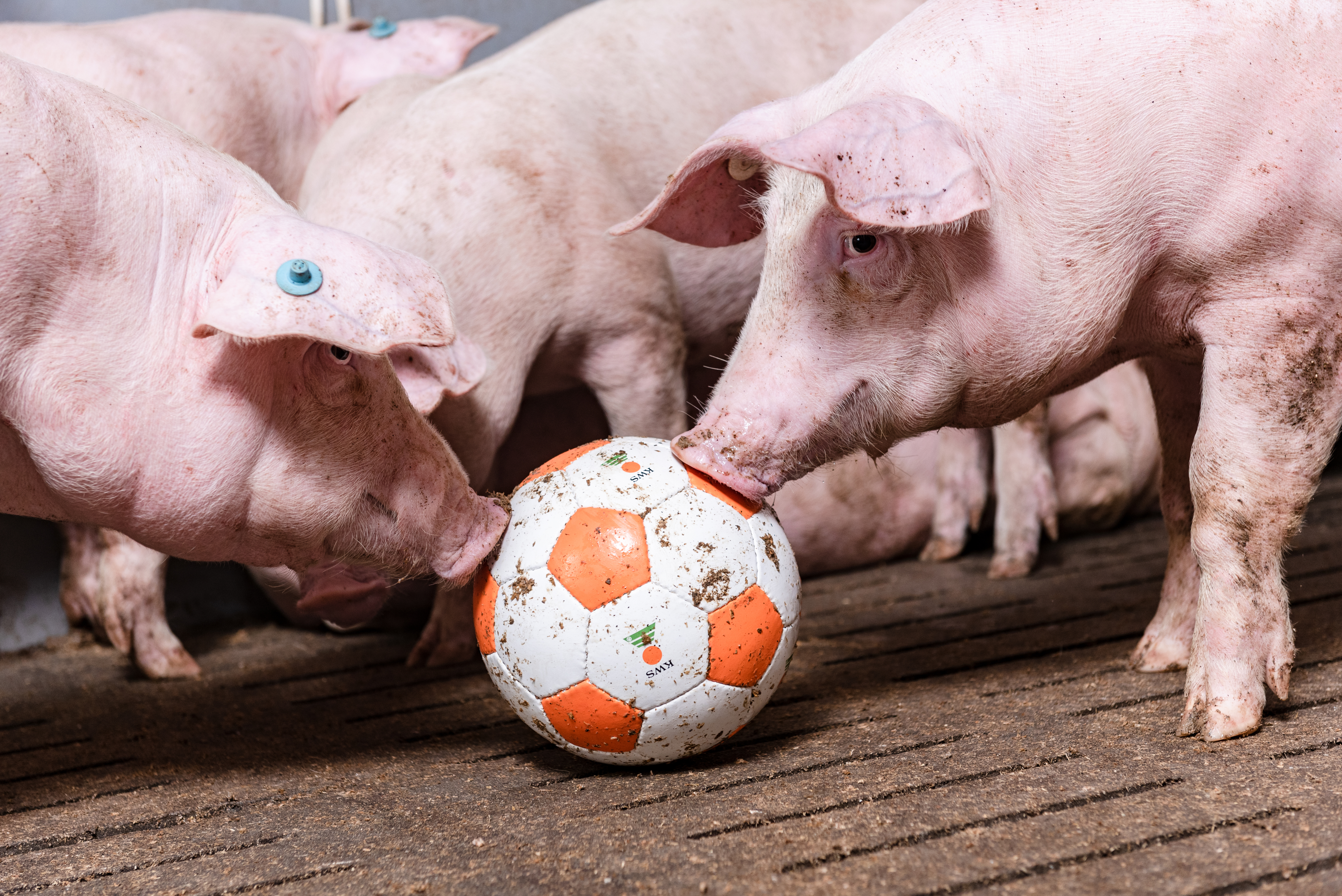Hybrid Rye for Nursery Pigs
More Hybrid Rye for Pigs Pages: Hybrid Rye for Sows | Hybrid Rye for Nursery Pigs | Hybrid Rye for Growing/Finishing Pigs
Recommended inclusion of hybrid rye in nursery pig diets ranges from 5 to 30%. As with other plant ingredients, it is recommended to start with low inclusion levels in the early phases and gradually increase as the pigs grow. The fibre content of hybrid rye can pose challenges to feed intake and digestion in young pigs but also can provide benefits to intestinal health. By starting with low inclusion levels, the pig can gradually adapt to the ingredient leading to good growth performance as well as maximizing the health benefits of including hybrid rye.
Several research studies have shown that hybrid rye can successfully replace portions or corn or wheat in the diets of nursery pigs without impacting growth performance. In a large commercial study conducted in Canada, the average daily gain and average daily feed intake of pigs was equal to control pigs when hybrid rye was included at 10 and 20% in dietary phase 3 and 4.
Research has also shown that feeding hybrid rye to nursery pigs promotes the growth of beneficial bacteria in the intestine and reduces the prevalence and shedding of Salmonella in feces. In some cases, this has translated to reduced diarrhea and mortality post-weaning.
Functional Attributes of Hybrid Rye for Nursery Pigs
- Consistent crude protein content with excellent SID amino acid profile, ideal for young pigs
- Prebiotic effect of fibre boosts the presence of beneficial bacteria and reduces pathogen binding in the intestine, leading to improved gut health
- Short chain fatty acid production in the large intestine provides an energy source and promotes good intestinal health
- Reduced prevalence of Salmonella in the intestines and feces
- Potential for reduced incidence of diarrhea and mortality
References:
Bussières, 2019; Hankel et al., 2022; Chuppava et al., 2020; Lindhaus et al., 2024



